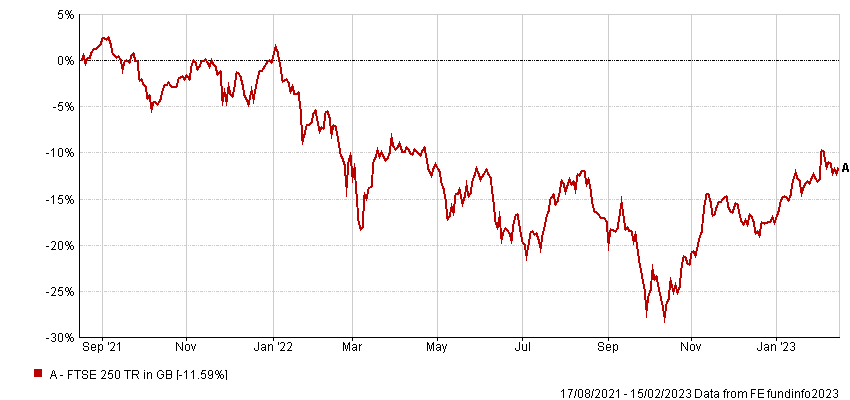Certain parts of the quality-growth sector still look overvalued, according to VT Tyndall Real Income’s Simon Murphy, even after its recent underperformance.
After leading the UK market for most of the post-financial crisis period, the sector was hit last year as its “bond proxy” status became less valuable after fixed income yields spiked.
Yet Murphy warned the re-rating doesn’t necessarily represent a buying opportunity, saying consumer goods companies in particular “are all still a bit too expensive”.
“Back in pre-Covid times, they got caught up in the whole chase for growth, quality and predictability,” he explained.
“They were the poster children for that and as a consequence, their valuations went up to what were very high multiples.”
The manager added that while the price-to-earnings (P/E) ratios of many consumer goods companies such as Unilever have fallen from the mid-20s to the high teens, this compares with single-digit multiples in the mid-cap cyclicals and industrials where he is currently overweight.
“That gap is too wide,” he continued. “Don't get me wrong, it’s not as if these consumer goods companies are bad businesses – they are very good businesses, it's just valuations aren't particularly attractive today.”
One of the reasons consumer goods companies trade on a premium to cyclicals is they sell products that people continue to buy at a steady rate regardless of what is happening in the wider economy. The cyclicals preferred by Murphy tend to suffer during a recession as sales fall, potentially turning profitable businesses into loss-making ones.
However, the manager claimed that the economic downturn being priced into these stocks is nowhere near as dire as valuations imply.
“The market has become far too negative about the prospects for the next 12 months or so, not just in the UK but globally,” he explained.
“A lot of the areas of the market are quite badly beaten up, mid-caps in particular. It's a great opportunity from a valuation perspective, but also because I personally don't think you're going to have the consensus degree of economic weakness.”
Performance of index over 18 months

Source: FE Analytics
Murphy said he has held this optimistic view for some time, adding that it has been validated by recent economic data and results from consumer-focused companies which have reported surprisingly resilient earnings figures.
He also said that UK stocks could receive a boost from China’s reopening following the end of numerous Covid lockdowns, a theme he is playing through exposure to large-caps such as Standard Chartered, Prudential and Burberry, but also mid-caps such as emerging markets debt specialist Ashmore.
“Ashmore has been running money for a long time, its managers have been through many cycles and they’re hugely experienced,” the manager said.
“Emerging markets have been out of favour for not dissimilar reasons to the UK and valuations look attractive after they came under pressure last year.”
The manager said the company doesn’t do as well in falling markets as rising ones and admitted it came under pressure last year.
“But it has a rock-solid balance sheet, somewhere in the region of £500m of cash, and is yielding 5.5%, so it’s paying an attractive income while you're waiting for emerging markets to recover.
“And loans have picked up in emerging markets in the last few months. So that's an interesting one.”
He also said there are attractive valuation opportunities in companies exposed to the domestic consumer such as housebuilders Vistry and Taylor Wimpey and retailers such as Dunelm, DFS and Wickes.
His assertion that the UK is cheap is not a new one, with many of his peers making this claim ever since the vote to leave the EU. Yet the market has continued to get cheaper ever since then.
So what does he think will turn this around?
“Corporates and other actors will highlight the value,” he said. “I suspect we'll see another pickup in M&A activity, either from the likes of private equity which still have dry powder, or other corporates, particularly from overseas.
“But to be frank with you, the UK market did well over the past year, and if we continue to see relatively strong performance, that will attract attention as well.”





